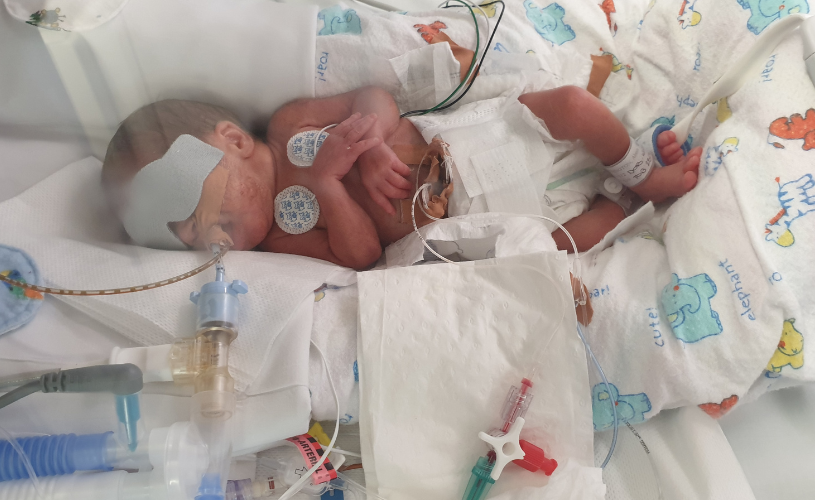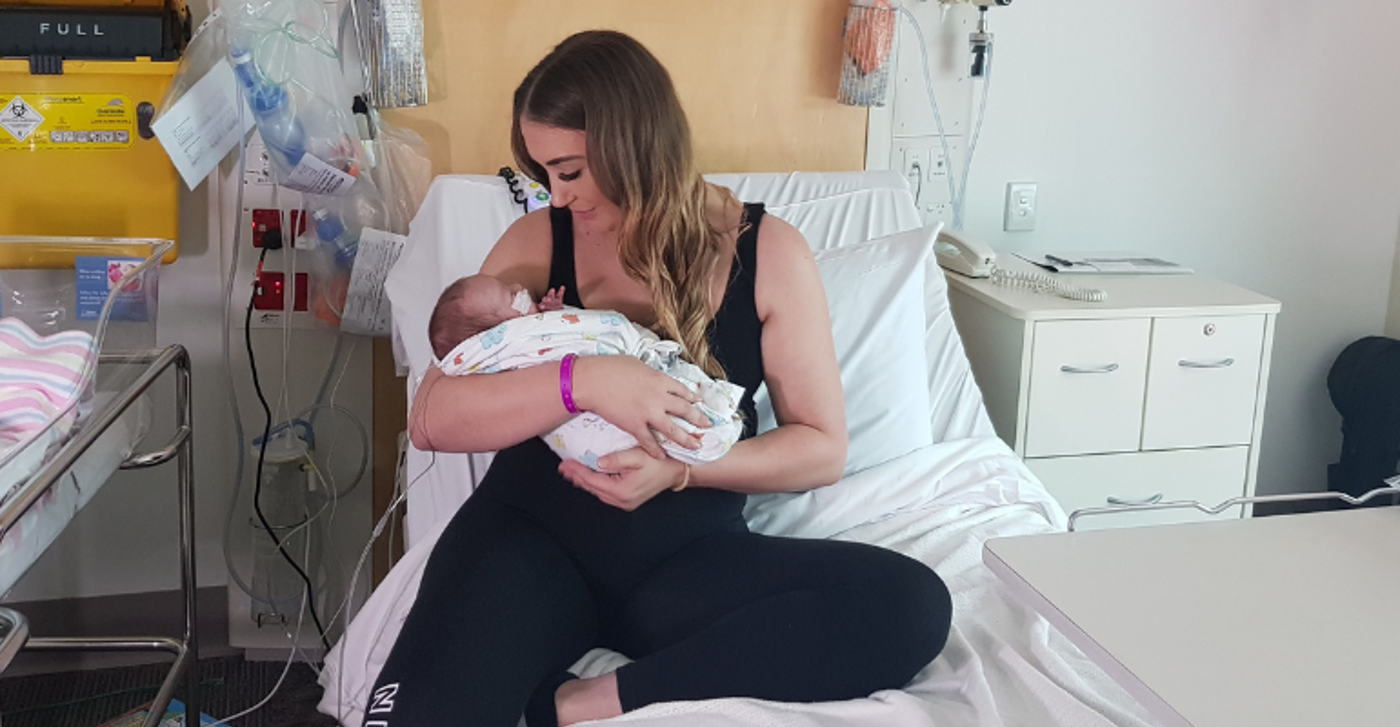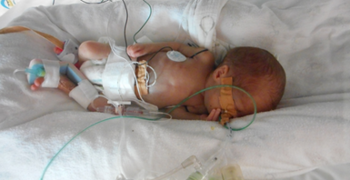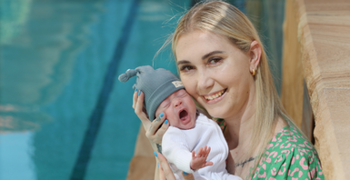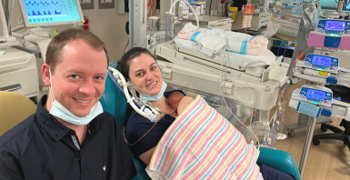Baby Lyric’s entrance into the world was dramatic. Born at just 25 weeks gestation, he weighed just 970 grams and was smaller than an eggplant.
Just 25 weeks into her pregnancy, Alana suffered stomach cramps which she had thought were the result of a gastro bug. To her dismay, these cramps were not 'gastro cramps', but in fact, early signs of labour.
When she arrived at Mater Mothers’ Hospital, Alana was given steroids and other medications to help Lyric’s lungs and eyes, and to keep him in utero for as long as physically possible. Four days later, Lyric entered the world by an emergency caesarean and was taken straight to Mater’s Neonatal Critical Care Unit (NCCU).
“I couldn’t hold him for the first seven days, which was heartbreaking,” recalls Alana.
“The first time I held Lyric was very intimidating, but amazing. The NCCU was a world I knew existed, but which I knew nothing about—I never understood where premmie babies went. Every day in the NCCU was a blessing and a battle at the same time—I was very scared to hold him.”
The medical team discussed possible medical complications with Alana.
“This was one of the hardest things I have ever experienced. I was so scared and desperate…I couldn’t take my baby home with me, but the [medical] team and other parents in the NCCU were there for me every step of the way."
Lyric is now four months old, but because he was born 15 weeks early he is still only 6 weeks corrected age. He is lifting his head now and meeting important developmental milestones. Although he will remain on oxygen until his lungs fully develop, Alana and Lyric are both home and enjoying life together.
Each year, many babies are born well before their due date. These babies are incredibly small and fragile and can fit into the palm of your hand.
As you can imagine, every one of these babies requires a very high level of care throughout their journey at Mater’s Neonatal Critical Care Unit. This journey can take many weeks and involves neonatal intensive care and special care before they are big enough, old enough and strong enough to go home. Thanks to community support from people like you, Alana's precious son, Lyric, can survive and thrive. Lyric has benefitted from improved care and treatments developed over many years through Mater Research. Such advances are only made possible through the generosity of people like you.
One of Mater’s latest research projects, “Preterm Brain Outcome”, is studying a group of premature babies to determine whether it is possible to predict which babies are more likely to be affected by premature birth.
We know that some premature babies can have developmental challenges, but we can’t always tell early on which babies will be affected or by how much. If we can predict early which babies are the most likely to have problems with their developmental progress, it may be possible to provide early help for them and their families.
Associate Professor Sam Bora is so thankful for your support of research at Mater.
“I am passionate about improving the quality of life for high-risk children and their families. I am determined to find an appropriate answer to the question that parents often ask me—what’s the developmental prognosis for my premature baby? Every day we take small steps towards being able to answer that question effectively. I am committed to delivering an effective plan for parents to help improve their child’s life.”
